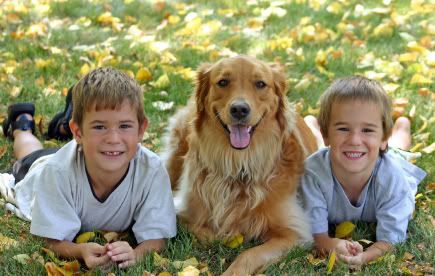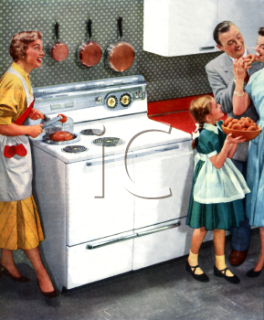The research on bullying is comprehensive and, generally, consistent and shows that bullying
is widespread in schools and communities around the world. Work from well-known
Australian researcher, Ken Rigby, for example, reports that about one child in six (16.6%) is
bullied in Australian schools on a weekly basis. In Norway approximately 9% of children in
schools are bullied weekly (Olweus, 1993), in England approximately 8% (Smith & Sharp,
1994) and in the USA, the National School Safety Centre estimates suggest that 8%
(approximately 1 in 12) of students are victimized throughout the school year, with an
estimated 22% victimized at the beginning of the year.
While most of the bullying is in the form of verbal harassment and teasing, a report from the
United Kingdom (Ofsted, 2005), suggests that up to 5% of pupils may display challenging
behavior which results in more serious violence, although serious violent behavior is still rare.
In the UK example, where behavior was so serious that there were permanent exclusions
from schools, 14% were for assaults against other pupils and 12% were for assaults against
staff. For long-term suspensions, the figures were 16% for assaults against pupils and 5% for
assaults against staff. The report further points out that sound international comparisons on
the extent and nature of poor behavior in school is difficult to come by, but figures for the
United States and Canada appear similar to UK figures.
While bullying, obviously, can have serious effects on victims, it is important to recognize the
ongoing effects on the bullies and on society as a whole if we do not take seriously the
problem of bullying.
The Bullies
What does the research say?
Bullies are more likely to have a criminal conviction by age 24.
60% of bullies have criminal records and are more likely to engage in violent behavior
after leaving school.
Aggressive behavior at the age of eight is a powerful predictor of criminality and
violent behavior at the age of 30.
Students who are bullies at age 14 tended to also bully as adults and are much more
likely to have children who engage in bullying.
(Source: Eron, L. D. (1995), A Longitudinal Study of Bullies. Psychology Today, September
'95)
We do know that bullies end up being disadvantaged throughout their lives because they are
unable to relate to others in an acceptable and positive way. They often never learn the skills
to cope with conflict and violence – except by using conflict and violence – and their lives can
spiral out of control as their relationships deteriorate.
While there is some evidence that bullies can be quite popular in the early years of school, by
senior years their peers often reject them because they have become tired of being bossed
around and bullied. Or they find themselves forced to hang around with ‘losers’ as peers
concentrate on their studies and future careers.
The research (Hara Marano in Psychology Today, 1995) shows that bullies are more likely to:
find it difficult to cope with their studies
drop out of school earlier
experience less success in relationships
earn less in later life
have difficulty creating close friendships
create another generation of bullies
solve problems with their wives and children by using physical violence
abuse alcohol and drugs, if they are male
lose friends, if they are female.
The Role of the Community
Although it is limited, there is some research on bullying in the wider community, and the
effect this might have on the attitudes and behaviour of young people.
A 2001 survey in Australia by VicHealth, concluded that bullying is rife across society, from
the more traditionally known settings for bullying, schools and the workplace, to government,
media and sporting circles.
Two thirds of 600 people involved in a survey believed that there was a culture of bullying in
their State and they generally believed that bullying was part of their countries culture. 91%
percent of those surveyed reported they had been a victim of one or more forms of bullying,
although a resounding 95% said bullying was never acceptable and only 8 percent believed
the prevalent culture of bullying should be acceptable.
Some of the findings from the survey were that:
Country people were more likely than their city counterparts to have difficulty in
sleeping, feel tired, depressed or suffer an upset stomach or headache, as a result of
being bullied.
City dwellers were more likely than rural people to feel stressed, angry, upset or to be
embarrassed, as a result of bullying.
7 out of 10 surveyed believed that the way some radio talk back announcers spoke to
callers was bullying.
Almost 4 out of 10 nominated a politician as a public figure who’s a bully.
Almost half of respondents believed the language used by politicians at question time
was bullying.
When asked to identify by name any public figures they thought were bullies, 39%
identified politicians, 11% named media figures, 6% names sporting personalities and
4% named union officials.
The 8 percent of the population who thought the culture of bullying was acceptable
were most likely to be: younger people (18-24), males, low-income earners and those
with lower levels of education.
Females were more likely to suffer symptoms such as feeling embarrassed,
depressed, frightened, tired, avoiding return to the scene of the bullying, withdrawing
from school or work, and getting sick more often than normal as a result of bullying
than males.
Both males and females were likely to feel angry at being bullied, but males are
slightly more likely to drink alcohol, to have a cigarette, or to smoke more, as a result
of bullying.
This research is important because it indicates that children are likely to see bullying in their
daily lives on a regular basis, and the bullying is often perpetrated by high profile figures who
might be considered ‘role models’.
Children copy what they see.
The fact is, the research tells us that stopping bullying is going to take more than supporting
victims and punishing perpetrators. The problem is more complex than that. It requires, at the
very least, that every member of society take responsibility for his or her actions to ensure
they do not inadvertently send signals that bullying is ever acceptable.
References
Rigby, K. (1996), Bullying in Schools: and what we do about it, Melbourne: ACER
Olweus, D. (1993), Bullying at School, Cambridge: Blackwell
Smith, P. & Sharp, S. (eds), (1994), School Bullying: Insights and Perspectives, London
Ofsted (2005), Managing Challenging Behaviour, London, www.ofsted.gov.uk
VicHealth, (2001), Victorian Attitudes Towards Bullying, Research Paper,
http://www.togetherwedobetter.vic.gov.au/resources/research.asp
This article was written by Robyn Collins and Wendy Nichols
Check out their site Solving A Bullying Problem
is widespread in schools and communities around the world. Work from well-known
Australian researcher, Ken Rigby, for example, reports that about one child in six (16.6%) is
bullied in Australian schools on a weekly basis. In Norway approximately 9% of children in
schools are bullied weekly (Olweus, 1993), in England approximately 8% (Smith & Sharp,
1994) and in the USA, the National School Safety Centre estimates suggest that 8%
(approximately 1 in 12) of students are victimized throughout the school year, with an
estimated 22% victimized at the beginning of the year.
While most of the bullying is in the form of verbal harassment and teasing, a report from the
United Kingdom (Ofsted, 2005), suggests that up to 5% of pupils may display challenging
behavior which results in more serious violence, although serious violent behavior is still rare.
In the UK example, where behavior was so serious that there were permanent exclusions
from schools, 14% were for assaults against other pupils and 12% were for assaults against
staff. For long-term suspensions, the figures were 16% for assaults against pupils and 5% for
assaults against staff. The report further points out that sound international comparisons on
the extent and nature of poor behavior in school is difficult to come by, but figures for the
United States and Canada appear similar to UK figures.
While bullying, obviously, can have serious effects on victims, it is important to recognize the
ongoing effects on the bullies and on society as a whole if we do not take seriously the
problem of bullying.
The Bullies
What does the research say?
Bullies are more likely to have a criminal conviction by age 24.
60% of bullies have criminal records and are more likely to engage in violent behavior
after leaving school.
Aggressive behavior at the age of eight is a powerful predictor of criminality and
violent behavior at the age of 30.
Students who are bullies at age 14 tended to also bully as adults and are much more
likely to have children who engage in bullying.
(Source: Eron, L. D. (1995), A Longitudinal Study of Bullies. Psychology Today, September
'95)
We do know that bullies end up being disadvantaged throughout their lives because they are
unable to relate to others in an acceptable and positive way. They often never learn the skills
to cope with conflict and violence – except by using conflict and violence – and their lives can
spiral out of control as their relationships deteriorate.
While there is some evidence that bullies can be quite popular in the early years of school, by
senior years their peers often reject them because they have become tired of being bossed
around and bullied. Or they find themselves forced to hang around with ‘losers’ as peers
concentrate on their studies and future careers.
The research (Hara Marano in Psychology Today, 1995) shows that bullies are more likely to:
find it difficult to cope with their studies
drop out of school earlier
experience less success in relationships
earn less in later life
have difficulty creating close friendships
create another generation of bullies
solve problems with their wives and children by using physical violence
abuse alcohol and drugs, if they are male
lose friends, if they are female.
The Role of the Community
Although it is limited, there is some research on bullying in the wider community, and the
effect this might have on the attitudes and behaviour of young people.
A 2001 survey in Australia by VicHealth, concluded that bullying is rife across society, from
the more traditionally known settings for bullying, schools and the workplace, to government,
media and sporting circles.
Two thirds of 600 people involved in a survey believed that there was a culture of bullying in
their State and they generally believed that bullying was part of their countries culture. 91%
percent of those surveyed reported they had been a victim of one or more forms of bullying,
although a resounding 95% said bullying was never acceptable and only 8 percent believed
the prevalent culture of bullying should be acceptable.
Some of the findings from the survey were that:
Country people were more likely than their city counterparts to have difficulty in
sleeping, feel tired, depressed or suffer an upset stomach or headache, as a result of
being bullied.
City dwellers were more likely than rural people to feel stressed, angry, upset or to be
embarrassed, as a result of bullying.
7 out of 10 surveyed believed that the way some radio talk back announcers spoke to
callers was bullying.
Almost 4 out of 10 nominated a politician as a public figure who’s a bully.
Almost half of respondents believed the language used by politicians at question time
was bullying.
When asked to identify by name any public figures they thought were bullies, 39%
identified politicians, 11% named media figures, 6% names sporting personalities and
4% named union officials.
The 8 percent of the population who thought the culture of bullying was acceptable
were most likely to be: younger people (18-24), males, low-income earners and those
with lower levels of education.
Females were more likely to suffer symptoms such as feeling embarrassed,
depressed, frightened, tired, avoiding return to the scene of the bullying, withdrawing
from school or work, and getting sick more often than normal as a result of bullying
than males.
Both males and females were likely to feel angry at being bullied, but males are
slightly more likely to drink alcohol, to have a cigarette, or to smoke more, as a result
of bullying.
This research is important because it indicates that children are likely to see bullying in their
daily lives on a regular basis, and the bullying is often perpetrated by high profile figures who
might be considered ‘role models’.
Children copy what they see.
The fact is, the research tells us that stopping bullying is going to take more than supporting
victims and punishing perpetrators. The problem is more complex than that. It requires, at the
very least, that every member of society take responsibility for his or her actions to ensure
they do not inadvertently send signals that bullying is ever acceptable.
References
Rigby, K. (1996), Bullying in Schools: and what we do about it, Melbourne: ACER
Olweus, D. (1993), Bullying at School, Cambridge: Blackwell
Smith, P. & Sharp, S. (eds), (1994), School Bullying: Insights and Perspectives, London
Ofsted (2005), Managing Challenging Behaviour, London, www.ofsted.gov.uk
VicHealth, (2001), Victorian Attitudes Towards Bullying, Research Paper,
http://www.togetherwedobetter.vic.gov.au/resources/research.asp
This article was written by Robyn Collins and Wendy Nichols
Check out their site Solving A Bullying Problem















